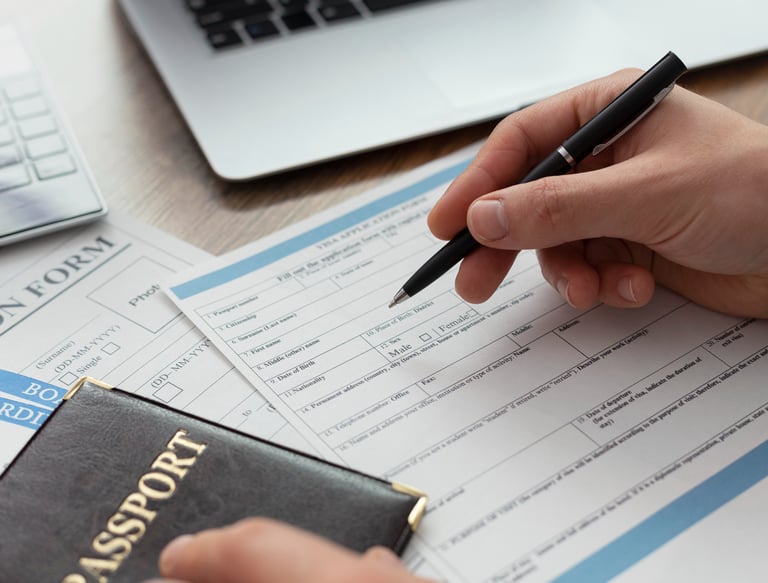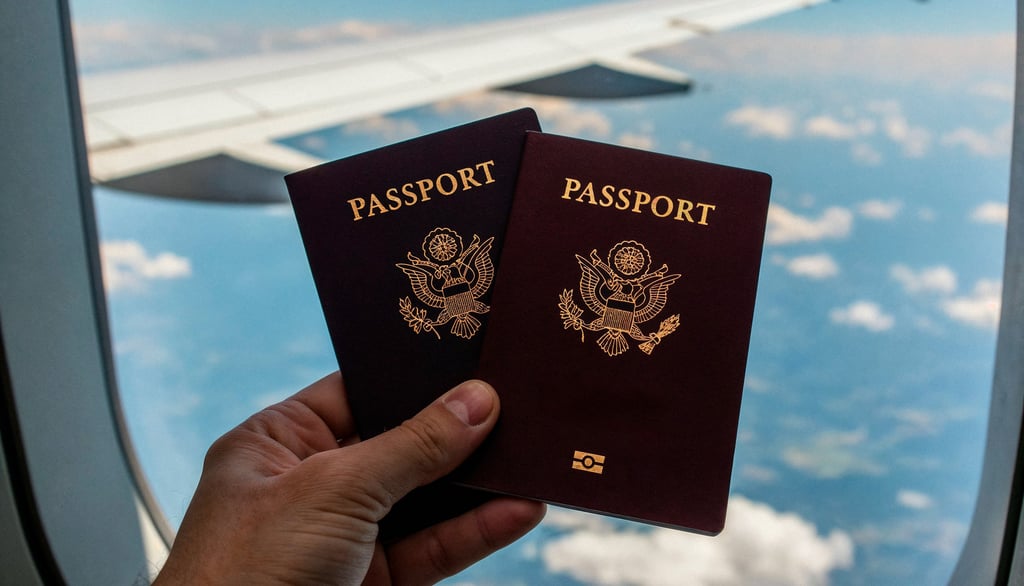What Is Diplomatic Passport?
A diplomatic passport is a special travel document issued by a government to its diplomats and certain government officials who travel abroad on official state business. It is primarily available to career diplomats—such as ambassadors, consuls, and attachés—as well as other designated staff posted to embassies, consulates, or official foreign missions.
Recognized worldwide and often distinct in appearance (commonly black or another unique color), diplomatic passports serve as both a practical tool for facilitating official travel and a symbol of a nation’s representation on the international stage.
How We Can Help?
Official International Representation
Diplomatic passports are issued exclusively for carrying out official state duties abroad, including attending international conferences, negotiating treaties, engaging in bilateral or multilateral discussions, and providing consular services.
Facilitating Efficient Travel
They help minimize delays at borders by offering streamlined customs and immigration processes for official travelers, ensuring urgent diplomatic tasks can be completed without unnecessary interruptions.
Compliance with International Law
Under the Vienna Convention on Diplomatic Relations (VCDR), accredited diplomats and recognized consular staff are entitled to certain rights and privileges, including safe passage through third countries when traveling between their host country and home country.
Purpose of a Diplomatic Passport
Benefits of Holding a Diplomatic Passport
Our team provides strategic guidance and project-based support for qualified individuals seeking to obtain diplomatic travel credentials through approved legal pathways. Each case is handled with discretion, professionalism, and full compliance.
Expedited Immigration Procedures
Many countries offer separate immigration channels for diplomats, reducing wait times and allowing for faster entry and exit.
Access to Diplomatic Facilities
Some airports provide dedicated diplomats’ lounges, reserved exclusively for diplomats, their official staff, and government representatives.
Potential Visa Advantages
Depending on bilateral agreements, some diplomatic passport holders may enjoy visa-free or visa-on-arrival access. However, this is not guaranteed and depends on the host country’s policy.
International Recognition
The passport formally identifies the bearer as an official representative of their state, enhancing credibility in official engagements.
The diplomatic passport truly elevated my global identity and streamlined my international travel experience significantly.
Global Citizen


★★★★★
Diplomatic Passport Application Process
Step 1: Government Appointment or Commission
The process begins with an official appointment issued by a competent authority. This may be in the form of a presidential or prime ministerial decree, a decision from the Ministry of Foreign Affairs, or an official order from the Council of Ministers. The appointment document must clearly outline the applicant’s role, the term of authority, the objectives of international representation, and a justification for granting diplomatic status.
Step 4: Submission of Official Application
After all approvals and checks have been completed, the applicant may formally submit their request for a diplomatic passport to the Department of Passports and Immigration. The submission typically includes a copy of the appointment document, an official letter from the commissioning authority, a completed application form, recent photographs, confirmation of security clearance, and consent for data processing. The department will then review the materials in detail.
Step 2: Coordination with the Foreign Affairs Authority
Once the appointment is secured, all relevant documents are submitted to the responsible foreign affairs authority for review. At this stage, the legitimacy and necessity of the appointment are verified, the possibility of issuing a diplomatic passport is assessed, and internal approval is granted to proceed with the application process.
Step 5: Passport Issuance and Delivery
Upon approval, the documents are sent to the official printing authority for production. The passport will be assigned a unique diplomatic number and its validity period specified—generally five years or matching the duration of the appointment. Once produced, the passport is delivered personally to the holder or via secure diplomatic channels.
Step 3: Security and Background Check
The Ministry of Internal Affairs and security services will conduct a thorough background check on the applicant. This includes verifying the absence of criminal records, connections with extremist or terrorist organizations, and compliance with integrity and suitability standards (fit and proper test). If any risks are identified, the application may be declined even if a government mandate exists.
Step 6: Accreditation in the Host Country
It is important to note that a diplomatic passport alone does not automatically grant diplomatic immunities or privileges. The holder must undergo accreditation in the host country through the relevant embassy or foreign ministry. Without accreditation, the passport serves only as proof of appointment and does not provide international legal protections.
Elevate Your Identity
Unlock global mobility and prestige with a diplomatic passport for unparalleled international recognition and influence.
USRAJ Investments LLC
Global diplomatic capacity specialist.
CONTACT
info@usraj.com
+1-619-379-6612
© 2025. All rights reserved.
8 The Green STE A, Dover, DE, 19901, United States


